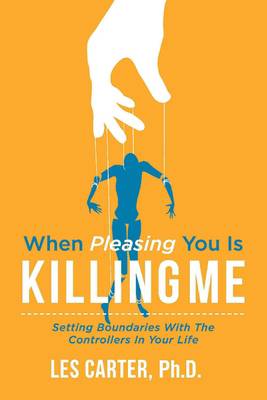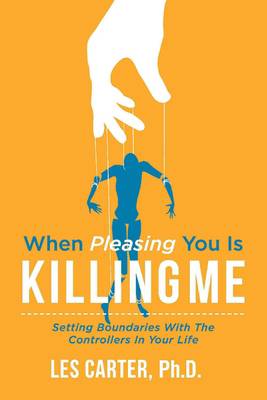
- Afhalen na 1 uur in een winkel met voorraad
- Gratis thuislevering in België vanaf € 30
- Ruim aanbod met 7 miljoen producten
- Afhalen na 1 uur in een winkel met voorraad
- Gratis thuislevering in België vanaf € 30
- Ruim aanbod met 7 miljoen producten
Zoeken
Omschrijving
Are you one who likes to keep the peace even when it comes at a high emotional price for yourself? Do your attempts to resolve differences with a controller leave you feeling wrung out and discouraged? Do you sense that your best traits (goodness, kindness, cooperation) somehow become a disadvantage with an overbearing counterpart? These questions and many more are addressed in the book, When Pleasing You Is Killing Me.
With decades of experience as a psychotherapist, Dr. Les Carter takes you inside his counseling office, inviting you to share in real life stories of people just like you who are trying to make sense of persistent, controlling demands from all sorts of controlling people. A major premise explained by Dr. Carter is that every person has a built-in inclination to be controlling, but as maturation happens, controlling behaviors diminish. People pleasers are naturally positioned to increase their maturity since they are already predisposed to being loving, kind, and respectful. But when they routinely butt heads with controlling counterparts, their maturation is stunted as they predictably get pulled into power forms of communication that include coercion, shaming, accusations, defensiveness, anger, suppression, and the like.
In the book, Dr. Carter will recount how real life pleasers developed relationship boundaries by incorporating assertiveness skills, ceasing unnecessary defensiveness, and setting aside false guilt for inner trust. Readers will be inspired to set their own pace in life, as opposed to letting the controller call the shots.
With decades of experience as a psychotherapist, Dr. Les Carter takes you inside his counseling office, inviting you to share in real life stories of people just like you who are trying to make sense of persistent, controlling demands from all sorts of controlling people. A major premise explained by Dr. Carter is that every person has a built-in inclination to be controlling, but as maturation happens, controlling behaviors diminish. People pleasers are naturally positioned to increase their maturity since they are already predisposed to being loving, kind, and respectful. But when they routinely butt heads with controlling counterparts, their maturation is stunted as they predictably get pulled into power forms of communication that include coercion, shaming, accusations, defensiveness, anger, suppression, and the like.
In the book, Dr. Carter will recount how real life pleasers developed relationship boundaries by incorporating assertiveness skills, ceasing unnecessary defensiveness, and setting aside false guilt for inner trust. Readers will be inspired to set their own pace in life, as opposed to letting the controller call the shots.
Specificaties
Betrokkenen
- Auteur(s):
- Uitgeverij:
Inhoud
- Aantal bladzijden:
- 260
- Taal:
- Engels
Eigenschappen
- Productcode (EAN):
- 9781543935127
- Verschijningsdatum:
- 23/06/2018
- Uitvoering:
- Paperback
- Formaat:
- Trade paperback (VS)
- Afmetingen:
- 152 mm x 229 mm
- Gewicht:
- 408 g

Alleen bij Standaard Boekhandel
+ 52 punten op je klantenkaart van Standaard Boekhandel
Beoordelingen
We publiceren alleen reviews die voldoen aan de voorwaarden voor reviews. Bekijk onze voorwaarden voor reviews.











